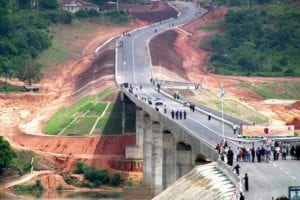Key to enabling African economies to make the most of their opportunities is developing infrastructure in the region.
Across the continent, new laws are being implemented and alternative sources of infrastructure funding are being sought in order to kick-start direly needed infrastructure projects. At the centre of it all is China, which is providing alternative sources financing to countries in Africa that have not been able to access funding in more traditional ways. The benefits are numerous, but African countries are also concerned about their growing dependence on China. Research released in 2018 from Baker McKenzie and IJGlobal (research) with data drawn exclusively from fully financed projects and excluding recent announcements of government funding commitments, shows that the value of loans from Chinese financing of energy and infrastructure projects in Africa almost trebled between 2016 and 2017, from $3 billion to $8.8 billion.. “As China’s Belt and Road Initiative (BRI), a multi-billion dollar plan to link Asia, Europe and Africa, is actively being implemented, we expect this amount will increase even further in the coming years,” says Wildu du Plessis, Head of Banking & Finance at Baker McKenzie in Johannesburg. According to the research, Chinese banks have been active lenders to infrastructure projects in 19 different countries in Africa in the past four years. Infrastructure projects in Ethiopia have received $1,8 billion since 2014, Kenyan projects $4,8 billion, Mozambique infra deals $1,6 billion and Nigerian projects $5 billion from Chinese lenders. South African infrastructure projects have received $2,2 billion from Chinese lenders since 2014, Zambia has received $1.5 billion and Zimbabwe has seen $1.3 billion in loans from Chinese policy lenders since 2014.As one of South Africa’s largest trading partners, China plays an important role in infrastructure investment in this country too. At the BRICS Summit Energy in 2018, China pledged to invest USD 14.7bn in South Africa and to grant loans to state owned enterprises Eskom and Transnet.
Du Plessis notes that even though the South African infrastructure funding gap is not as severe as other countries in Africa, there is a still difficulty in mobilising funds for infrastructure development and related projects because traditional funders take time to decide on whether to get involved. According to Kieran Whyte, Head of Energy, Mining & Infrastructure at Baker McKenzie in Johannesburg, “A big attraction of the BRI for both African governments and project sponsors is that it assists the speed of project implementation. Project stakeholders advise that the whole process is a lot quicker than other options.” Jia notes that, “Chinese policy lenders also assist in providing liquidity in that they are willing to negotiate with countries that have financial constraints that deny them access to traditional capital.” Du Plessis notes, however, that there is rising concern amongst African sovereigns who are worried about the long term effects on their dependence on China. “This is even though China has reiterated that it wants to be considered a responsible investor in Africa. It remains to be seen whether this concern has an impact on Chinse involvement in the funding infrastructure projects in future years. African countries have also begun building capacity to correct the imbalance between borrowers and lenders in the negotiation phase so that more balanced agreements can be reached,” he explains.





